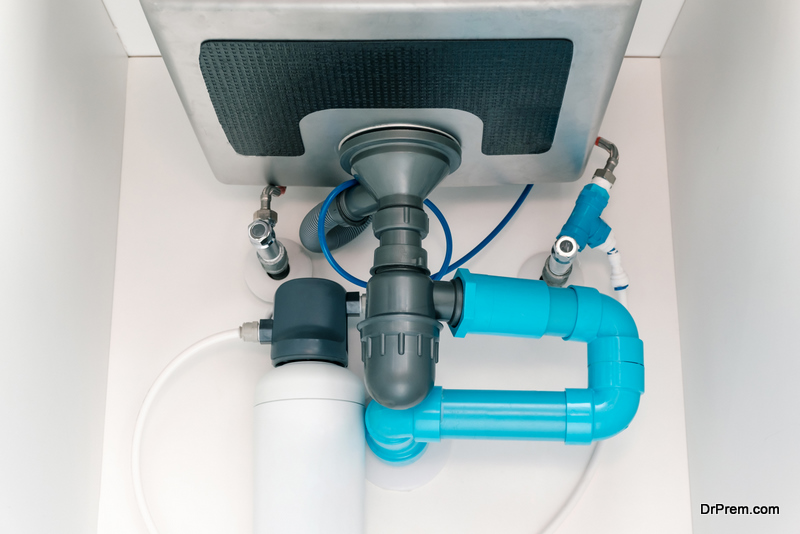Embracing sustainable living means incorporating habits and practices to reduce your carbon footprint and live harmoniously with nature. It demands a conscious effort to change various facets of everyday practices, one of which includes eco-friendly plumbing systems.
Understanding Eco-Friendly Plumbing Systems
Plumbing systems are not often discussed in the context of sustainable living. Yet, they are instrumental in conserving precious resources like water and reducing energy consumption.
Eco-friendly plumbing involves creating systems and practices that promote efficient usage of water, minimal wastage, and less reliance on non-renewable energy resources.
For instance, firms like Graham and Sons offer services to install such sustainable solutions, creating a positive impact on both your household and the environment.
Importance of Sustainable Plumbing
Eco-conscious plumbing networks can significantly slash water wastage, thereby becoming a crucial player in safeguarding our all-important water resources. Insights show that in a customary home setting, roughly 22% of water is expended in showers, with faucets and toilets following suit.
Pointing towards an unmatched potential for water saving if we choose smarter, efficiency-centered systems. The transition to green plumbing isn’t just an environmentally ethical decision; it also prepares the ground for considerable reductions in long-term utility expenditures.
Sources of Potable and Non-Potable Water
Water consumption in plumbing bifurcates into potable and non-potable categories. Potable water, safe for human ingestion, caters to cooking and drinking needs, while non-potable water serves areas where potability isn’t a necessity, such as toilet flushing or irrigation. By leveraging rainwater or repurposing greywater, we can cut back on the use of potable water in non-critical zones.
Efficient Ways of Water Heating
Traditional water heaters warm water continuously, whether it’s in use or not, leading to wastage of energy. By contrast, modern tankless or on-demand water heaters only heat water when needed, drastically reducing energy consumption. Additionally, solar-powered water heaters can further reduce reliance on traditional energy sources.
Eco-Friendly Materials in Plumbing Installations
Opting for earth-friendly plumbing materials, like those used in pipes, faucets, and other fixtures, can lead to a considerable carbon footprint reduction. For instance, polypropylene pipes offer a wonderful eco-friendly replacement for the conventional copper or PVC pipes, boasting increased durability and minimal leakage potential.
Advancements in Water Saving Technologies
Technological development has introduced several products designed to conserve water, such as low-flow showerheads, faucet aerators, and high-efficiency toilets. These fixtures can significantly reduce water usage without compromising comfort or convenience.
Grey Water Recycling and Use
Greywater is the used water from bathtubs, showers, sinks, laundry, etc. Greywater recycling systems reprocess this water and make it suitable for toilet flushing, irrigation, or other non-potable uses.
For instance, the Tucson community in Arizona implemented a program where residents retrofitted their plumbing systems for greywater reuse, demonstrating substantial water savings and fostering a participative attitude towards conservation.
Rainwater Harvesting in Plumbing Systems
Rainwater harvesting involves collecting and storing rainwater for later use, mainly for non-potable purposes. By integrating a rainfall collection system with your plumbing, you can efficiently utilize rainwater for applications like flushing toilets or watering the garden, reducing dependency on municipal water for these tasks.
Lowering Energy Consumption in Plumbing
Energy usage can be trimmed down effectively via green plumbing methods. These involve the utilization of solar or heat pump-powered water heaters, and providing insulation to water pipes to lessen energy wastage. Plus, energy-saving appliances, ranging from dishwashers to washing machines, also play a key role in preserving energy.
Making Sewage Treatment More Eco-Friendly
Sustainable options like composting toilets or methane reclamation at sewage treatment plants are useful in making waste management more eco-friendly. These innovative practices transform waste into useful products such as fertilizer, reducing the burden on landfills, and even harnessing energy.
Efficient Waste Disposal with Plumbing
Efficient disposal systems, such as waste segregation at source and garbage disposals integrated with kitchen sinks, can help reduce landfill waste. The use of waste disposers in kitchens ensures that organic waste can be processed through wastewater treatment plants rather than getting dumped into landfills.
Household Tips for Eco-Friendly Plumbing
Making small changes to everyday routines can contribute a great deal towards a sustainable lifestyle. Some tips to make your plumbing more eco-friendly include fixing leaks promptly, installing water-efficient fixtures, insulating water pipes, and regularly maintaining your plumbing system to ensure it runs efficiently.
The Bottom Line
With the global trend towards sustainability picking up speed, we can anticipate a flood of novel ideas and methods geared towards greener plumbing practices. As part of this movement, consumers will inevitably play an instrumental role by embracing these technologies and practices, thereby ushering us into a more sustainable era.
Article Submitted By Community Writer




